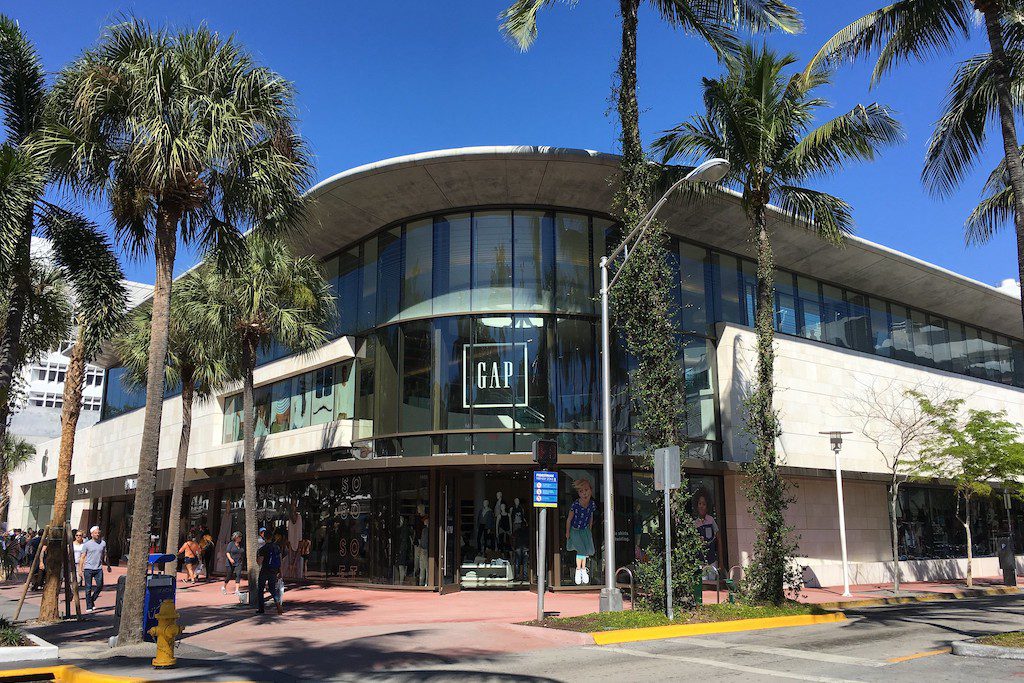Skift Take
It’s low-risk for big brands like Gap and Express to launch digital-native wellness brands considering the unfit state of brick-and-mortar sales. If these companies find success, other retailers may follow suit.
 The Skift Wellness newsletter is our weekly dispatch focused on what’s happening in wellness from a global business standpoint. Skift Wellness lives where wellness meets commerce, mindfulness meets technology, the yoga studio meets the boardroom, and health meets business.
The Skift Wellness newsletter is our weekly dispatch focused on what’s happening in wellness from a global business standpoint. Skift Wellness lives where wellness meets commerce, mindfulness meets technology, the yoga studio meets the boardroom, and health meets business.
Walk into any mall in the U.S., and there’s a pretty good chance you’ll see a Gap and Express store. It almost feels like without them, it’s not a real mall.
So as mall traffic declines across the country, these retail giants are seeking out new revenue streams and consumer trends — such as wellness — to attract customers. Gap was partly ahead of the curve with its 1998 launch of women’s athleisure brand Athleta, which has both an online and brick-and-mortar presence. It’s been a true bright spot for the otherwise troubled parent company.
Gap debuted its men’s athleisure sibling brand, Hill City, in 2018. It went the online-only, direct-to-consumer route with its launch, however, proving that times have changed in retail.
Express is now getting into the wellness game with its own direct-to-consumer brand, UpWest. Like Hill City, it’s bypassing brick-and-mortar and going straight online. Express knows how hard the mall-based business model is, so it makes sense that it would go digital-first. At the same time, direct-to-consumer retail is not necessarily in Express’ wheelhouse and will likely take many more marketing dollars to raise brand awareness since it won’t have a physical store to catch customers’ eyes.
Speaking of awareness, UpWest is aiming to attract a younger, more socially conscious shopper who is more about JOMO, or the joy of missing out, than FOMO, according to the brand’s CEO. To speak to that customer, it will sell self-care essentials, like fireside slippers and CBD creams.
In an interesting turn of events, Hill City opened a pop-up shop in San Francisco this month to help raise brand awareness. It also invested in a tour truck that will appear at Bay Area sporting events. Our guess is that UpWest follows the same playbook and gauges interest and customer preferences online before setting up any sort of physical shop.
Now we just want to know: What mall staple will be next to have its own wellness brand?
For feedback or news tips, reach out via email at [email protected] or tweet me @lesliebarrie.
— Leslie Barrie, Wellness Editor
Athleisure

Express Attempts to Skew Younger with a Wellness Brand: The nearly four-decade-old American retailer is still kicking thanks to its dominance in the mall space. But brick-and-mortar woes and an aging customer base have caused sales to decline recently. In response, the company has launched Upwest, a new online-only wellness brand that will sell all sorts of self-care goods to a younger crowd. It will likely take a lot of marketing effort to get millennials and Gen Z to notice though. Read more here.
Travel
What a Well-Certified Hotel Really Looks Like: We have a feeling the hospitality trend of wellness building certifications will start to take off, for better or worse. The International Well Building Institute gave the Inn at Moonlight Beach in San Diego platinum status for its design that, in theory, promotes health and well-being. The property is outfitted with a meditation garden, selenite crystal orbs in the rooms, and a DIY herb-bundling station — all the trappings wellness enthusiasts go wild over. Read more here.
Mind & Body
Calm Tries Its Luck at Business-to-Business Partnerships: Even though Calm has built its business on getting stressed-out customers to buy app subscriptions, it’s now turning to corporate clients to earn extra revenue. So far, Calm has penned deals with 300 businesses, such as well-known restaurant The Butcher’s Daughter and law firm Winston & Strawn, which offer the app subscription as a wellness work perk. Considering work is often a main source of employee stress, it’s a smart call on Calm’s part. Read more here.
Fitness
Peloton Gets Real With a Cheaper Treadmill: Sure, people are willing to spend $2,245 — not including membership fees — on a Peloton bike. But a $4,000 treadmill? That’s just absurd. Fortunately, the spin company is looking to launch a new, cheaper treadmill in 2020, as well as a rowing machine. And that’s just in time, as the at-home rowing company Hydrow aims to become the Peloton of rowing. The news sent Peloton’s stock up 9 percent, which the company needed after a shaky IPO debut. Read more here.
Wearables
The Google-Fitbit Deal Could Actually Be Blocked: From a business perspective, it seems like a no-brainer that Google would want to purchase Fitbit in order to compete with Apple in the smartwatch race. But some privacy and consumer advocacy groups are speaking out against the acquisition, claiming that Google “should not be allowed to add yet another way to track our every move.” It’s a fair point. As a result, the deal is likely to face an intense review. Read more here.
Skift Wellness Editor Leslie Barrie [[email protected]] curates the Skift Wellness newsletter. Skift emails the newsletter every Thursday.
The Daily Newsletter
Our daily coverage of the global travel industry. Written by editors and analysts from across Skift’s brands.
Have a confidential tip for Skift? Get in touch
Tags: boutique fitness, fitness, google, hotel design, retail, Skift Wellness, wearables, wellness
Photo credit: A Gap store is shown. Retail giants and mall staples are looking to wellness to attract new customers. @southbeachcars / Flickr
